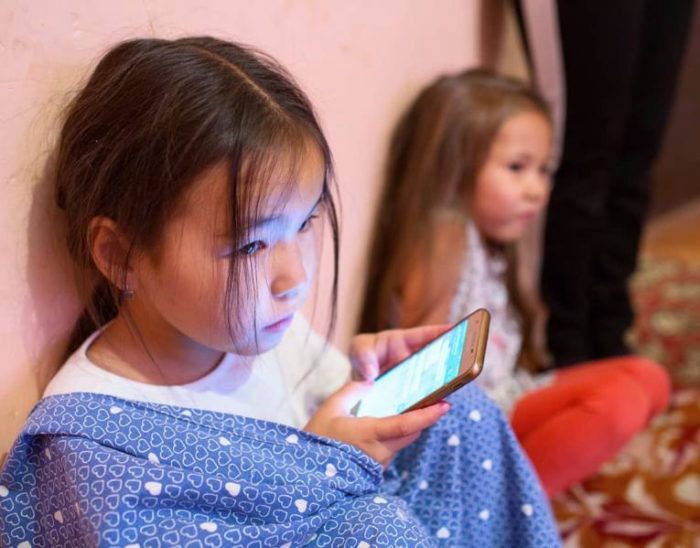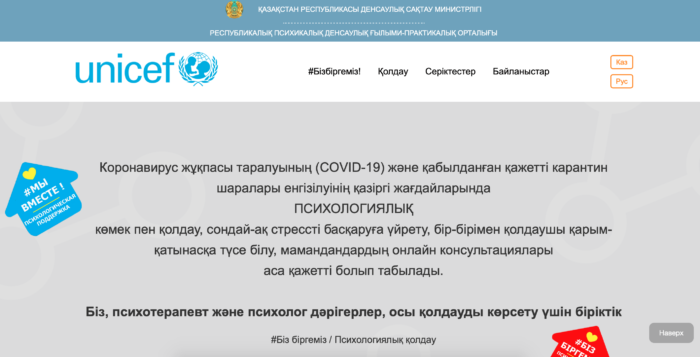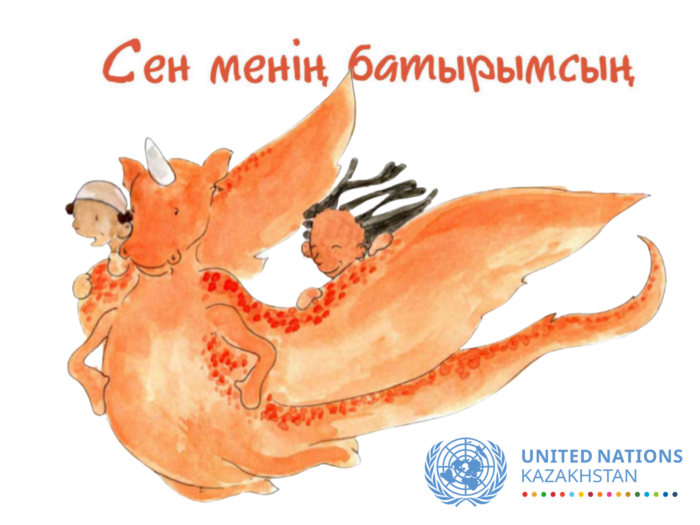The United Nations (UN) in Kazakhstan remains committed to supporting the most vulnerable groups affected by the coronavirus crisis in Kazakhstan. The latest UN report declared that “the socio-economic impact of the COVID-19 pandemic, together with measures to mitigate the spread of the new coronavirus, could potentially be catastrophic for millions of children worldwide.”

Photo credit: UNICEF in Kazakhstan.
The UN system in Kazakhstan is working to provide timely support for children in key areas that include education, safety and health.
“The UN urges the Government of Kazakhstan to take further steps to ensure specific protective measures for the most vulnerable children, such as migrants, refugees, children with disabilities, and those living in remote rural areas. The UN stands ready to support Kazakhstan in investing in its youngest generation to protect and safeguard their well-being,” said UN Resident Coordinator for Kazakhstan Norimasa Shimomura.
Working together, the United Nations Children’s Fund (UNICEF) and the National Mental Health Center under the Ministry of Healthcare, launched a psychological assistance website. People can get free virtual consultation with a psychologist after leaving a request.

As a result, more than 30,000 people from different regions visited the website in a month. Specialists conducted 152 individual online consultations.
The website also features recommendations for school teachers to organize support during the lockdown period.
UNICEF, working together with the Ministry of Education and Science and the Ministry of Labour and Social Protection released leaflets and posters on best practices to prevent the spread of COVID-19 among children affected by migration, children in residential care, and vulnerable families in impoverished regions.
“UNICEF’s #LearningAtHome campaign has reached about 3.5 million people through social media, spreading a message focused on promoting positive parenting. To disseminate information on COVID19 prevention in Kazakh and Russian, UNICEF mobilized a thousand online volunteers to broadcast COVID-19 messages, and published warning videos in 350 Kazpost branches throughout the country,” according to the release.
A Kazakh adaptation of the fairy-tale “You Are My Hero” was created to explain the situation with COVID-19 to children and has become one of the most popular media campaigns on social media. Its mission is to create an atmosphere of love and support, which is needed during the quarantine.

Influential public figures like journalist Makhabbat Yessen, actress Zhuldyz Abdukarimova, journalist Aray Alimkhan, travel blogger Dinara Bolat and actor Nurbek Alibek told stories about Dragon Ario’s heroic exploits against the virus. The videos are available on UN social accounts and on YouTube (watch).
The United Nations Population Fund (UNFPA) also launched a campaign to curb toxic masculinity with a series of videos dedicated to combating COVID-induced violence against women.
The United Nations Educational, Scientific and Cultural Organization (UNESCO) in Kazakhstan made sure that local journalists understood the importance of combating fake news and alternative narratives about the virus by releasing strict talking point guidelines for reporters. Another successful effort was the youth-led workshop on conflict-resolution skills and the #BeActive online sports campaign. The organization also provides guidelines to make sure parents are teaching their children according to proper guidelines while they are away from the more supervised and controlled information environment that schools provide.
It is expected that the United Nations Office for Project Services (UNOPS) will provide laptops to support distance education for students in the near future.
